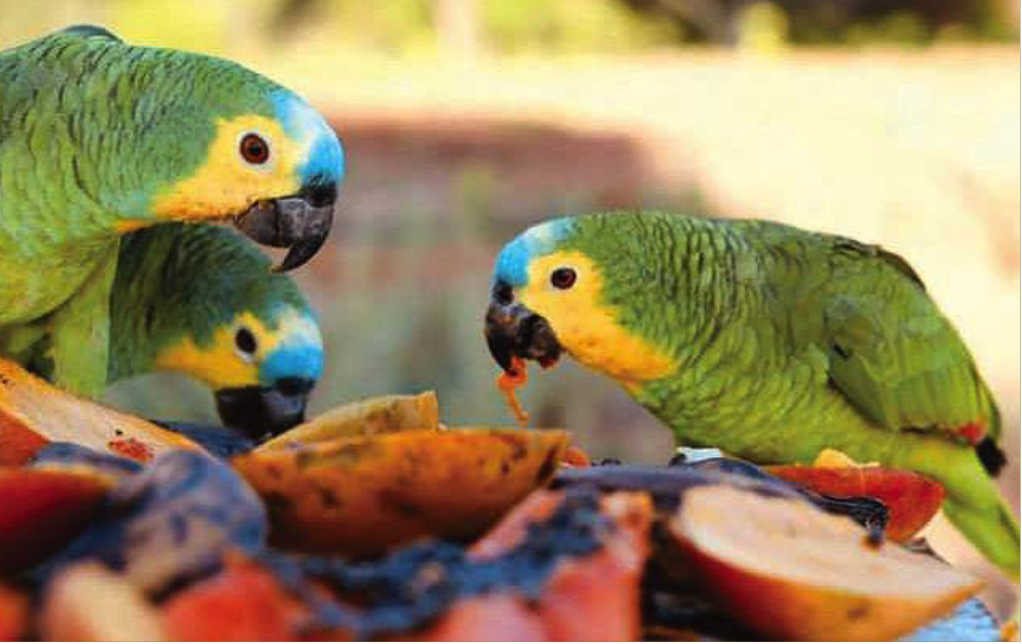Saving At-Risk Parrots: Caatinga Parrots Project
Status:

Collaborators/Funders:
Many parrots in Brazil remain at threat from trapping even though capture for the wildlife trade is illegal there. Recognising trapping’s harm to wild populations, Pernambuco Environmental State Agency’s rescue centre, CETAS Tangara – Centro de Triagem De Animais Silvestres Tangara (CPRH CETAS Tangara), in partnership with the wildlife centre of the Caatinga (CEMAFAUNA) at Sao Francisco University (UNIVASF), created the Caatinga Parrots Project in 2010 when the first confiscated parrots were rehabilitated and released back into the wild.
The centre has received Blue-fronted Amazons (Amazona aestiva), Cactus Conures (Eupsittula cactorum) and Blue-crowned Conures (Psittacara acuticaudata), among others. The birds come from diverse backgrounds and are commonly taken from the wild as chicks. The environmental police confiscate many of these birds and some are voluntarily surrendered. The team takes months to raise and wean chicks, train the birds to fear predators, evaluate their interaction with their contemporaries, help them build flight muscles through exercise, and acclimate the release candidates to the climate and food in the area where they will be freed. Before then, they are microchipped and leg-banded for monitoring. Thanks to the team’s expertise, most birds recover to thrive in the wild again. The World Parrot Trust has provided veterinary advice, medication, leg bands and surgical supplies, and helped to locate an anaesthesia machine for the project’s use.
The WPT is also supporting the reintroduction of Blue-fronted Amazons to areas where the species once occurred and is now locally extinct, mainly onto farms and protected reserves where in the past trapping for the pet bird trade was so severe that whole populations disappeared. Funding has also gone towards employing a community resident to conduct post-release monitoring and maintenance of feeding stations for the released birds.